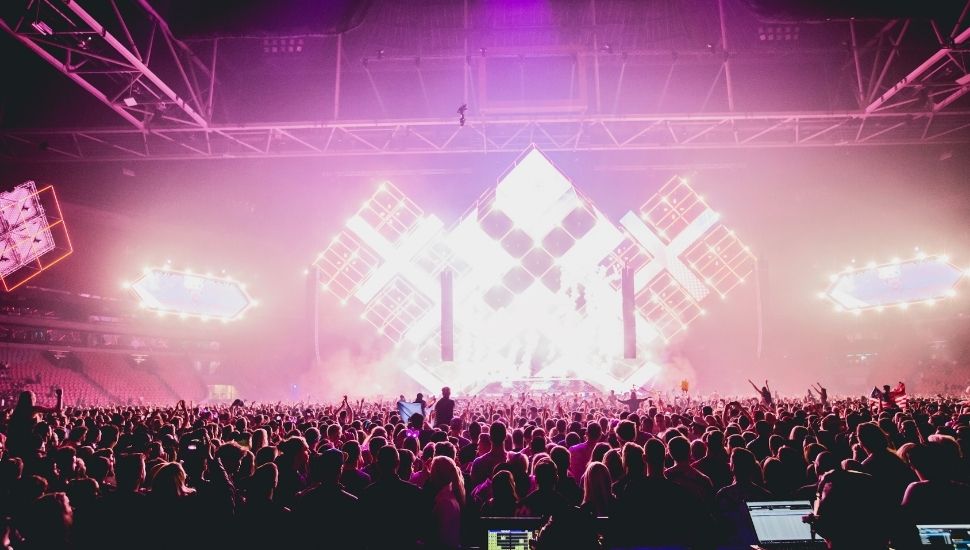Europe’s vastly different roads to live music recovery

Tame Impala’s gigs at Perth’s Metro City last month were probably the biggest live gig happening on the planet at that time. Seeing thousands of fans watching their favourite bands again – without masks – gives us all hope for how things could be.
In Europe, we see a completely different picture. At the recent International Live Music Conference (the London-based event was online only for the first time), the dividing line between the continent and the UK was stark.
While the UK claims the unenviable record of having one of the world’s highest death rates, its vaccination programme is motoring, and the governments of England, Scotland, Wales and Northern Ireland are setting out detailed ‘roadmaps’ showing anticipated dates for reopening. Although the official line is that the nations will open up ‘according to data, not dates’, the live industry is bullish. There’s already talk of a ‘roaring twenties’ getting underway as cooped-up Brits are finally allowed back to concerts. Festivals this summer are on sale – and sold out at break-neck speed.
Contrast this with colleagues in mainland Europe. Some countries, such as Greece, have very low infection rates and are eyeing the return of holidaymakers as early as May. Others, including Germany, Italy, France and Poland, are being swept by a third wave. To make matters worse, EU nations are struggling with a stalled vaccination roll-out. Promoters, venues and agents in these key touring markets are much more pessimistic.
Germany-based CTS Eventim is one of the largest promoters and tickets on the continent. CEO Klaus-Peter Schulenberg told Pollstar: “Since April 2020, we’ve been saying that we don’t believe in a comeback any sooner than Q2 2021. That’s what we’ve been bracing ourselves for. Now, we have to assume that it’s not going to go back to normal in Q2, but rather in Q3 or Q4.” He predicted open-air shows could return at reduced capacity in some form this summer.
However, his company’s largest festivals, Deichbrand, Hurricane, Southside, Rock am Ring, Rock im Park, SonneMondSterne, and Greenfield have postponed until next year. Indoor shows won’t go ahead much before Q4, he told the ILMC.
On the upside, the German government has actively – and generously – supported the live industry throughout the crisis. As well as handing out €50billion in financial aid for cultural businesses, it announced a €2.5billion fund to underwrite the costs of events planned for H2 2021 if they have to cancel due to Covid-19.
In the Netherlands, a series of trials is underway called Back To Live, with the aim of understanding the safest way for venues to reopen. Eight events, including two festival-style set-ups with 1,500 people, two indoor concerts, football stadium events and business conferences, are underway. At each one, people’s behaviour, track and trace techniques, visitor dynamics, air quality, and more are being scrutinised by scientists from Fieldlab. There are an incredible 80 further test events scheduled to help ramp up.
There’s also a €300million fund to cover the costs of events that have to cancel due to Covid-19 in the second half of the year – much like in Germany, Austria, Switzerland, Norway, Denmark, and elsewhere. The announcement in February saw Dutch festivals reschedule to September en masse, so they’re covered by the guarantees. It’s key to consumer confidence in the events, promoters say.
In the south, the Spanish live industry has seen very little financial support from the government. However, although the situation varies according to region, it is broadly open for concerts – with Catalonia at the forefront of reopening.
Despite having to reschedule its 2020 landmark festival twice (it’ll now take place in 2022), organisers of Primavera Sound ran a series of outdoor concerts last year and will run seven days of in-person gigs at Barcelona’s Coliseum Theatre in April. Cruïlla, one of Barcelona’s three major international music festivals, is pressing ahead this year on 8-10 July, headlined by Two Door Cinema Club, Editors, Morcheeba, and Of Monsters and Men. Rapid Covid-19 testing will be deployed to create a “sanitary bubble”, say organisers.
Until earlier this month, the Italian live sector hasn’t seen specific financial support, relying instead on national assistance such as tax deferrals and wage subsidies. Now, €50million is available to the sector – €15million for live clubs, €10million for concert organisers as compensation for missed or cancelled dates, and €25million for authors and performers for lost performance rights collections.
The differences in support and patchy way countries are eyeing reopening could result in the prospect of artists being able to tour the UK, but not the rest of Europe (European live industry Pearle* has a regularly updated map of each nation’s progress).
Will this leave some agents looking at their bottom lines, wondering whether it’s worth trekking overseas for such a limited tour? Certainly, if UK venues aren’t able to operate at full capacity, budgets will look tighter than Marc Bolan’s trousers.
The ongoing uncertainty over infection rates, huge differences in government support for live businesses, and varying attitudes to reopening mean any type of return to continent-wide touring is looking unpredictable. But that’s through no fault of the ever-proactive people working live business, who are going flat-out to see the smiling faces of fans once again as they get back into concerts.
This article originally appeared on The Industry Observer, which is now part of The Music Network.
































